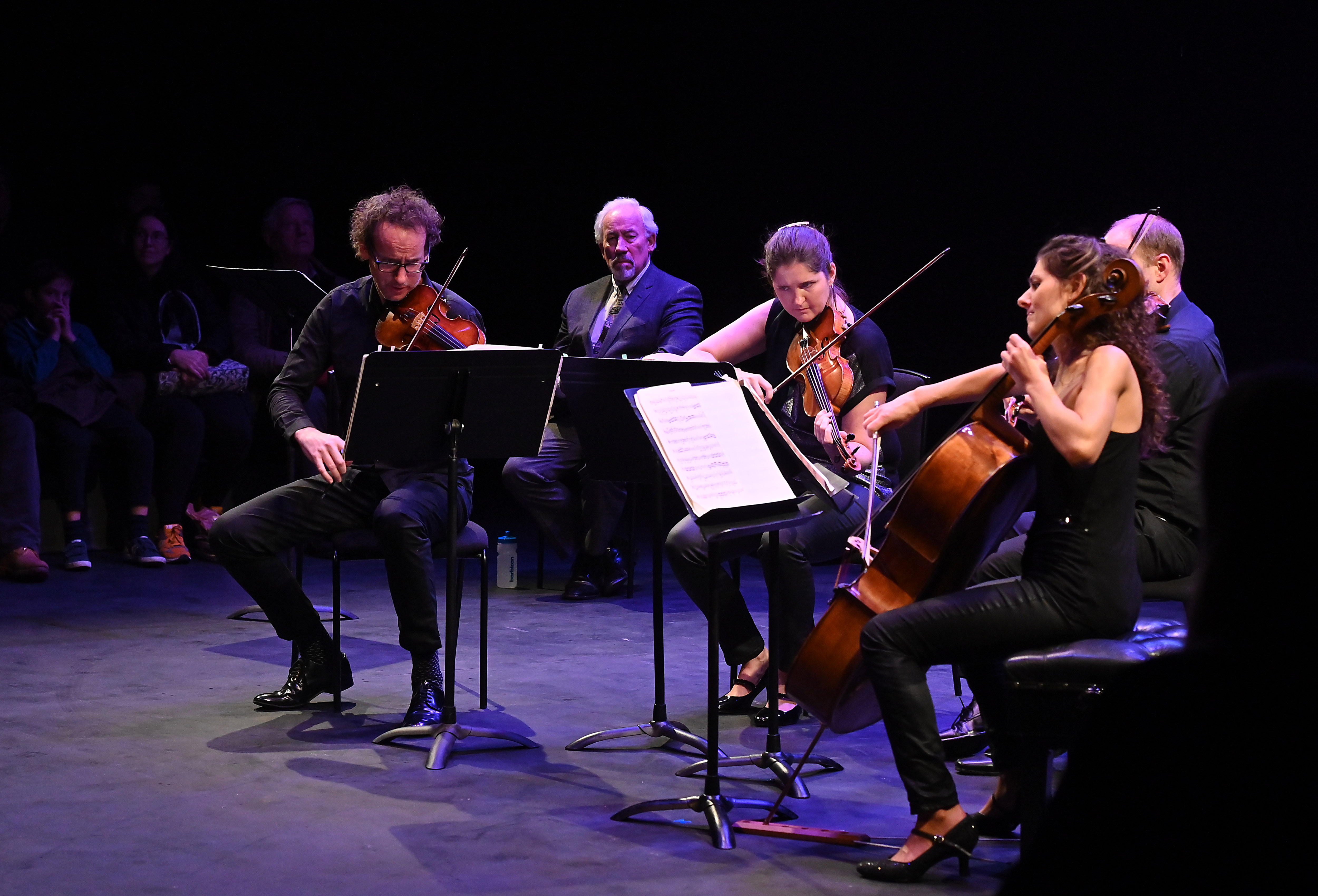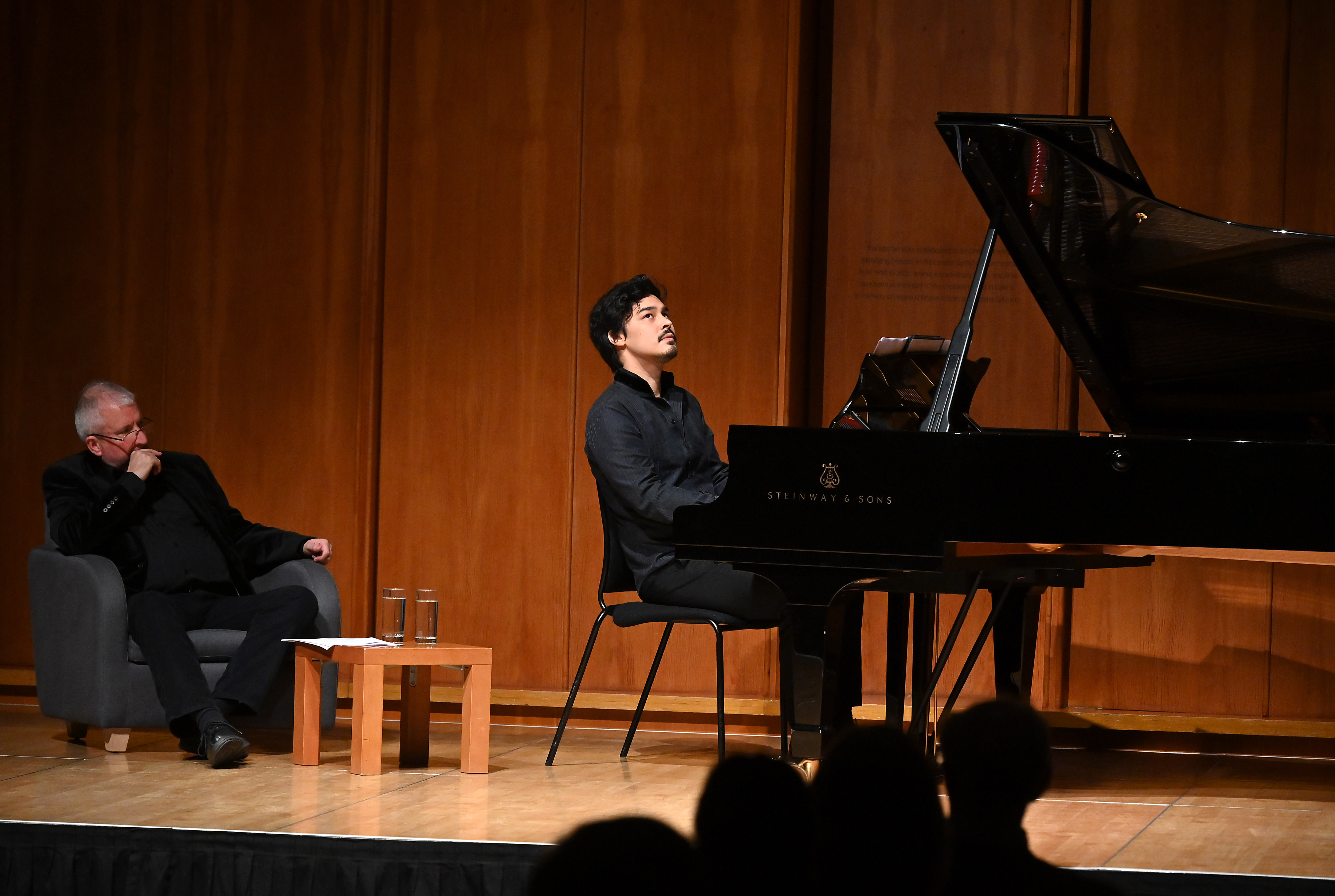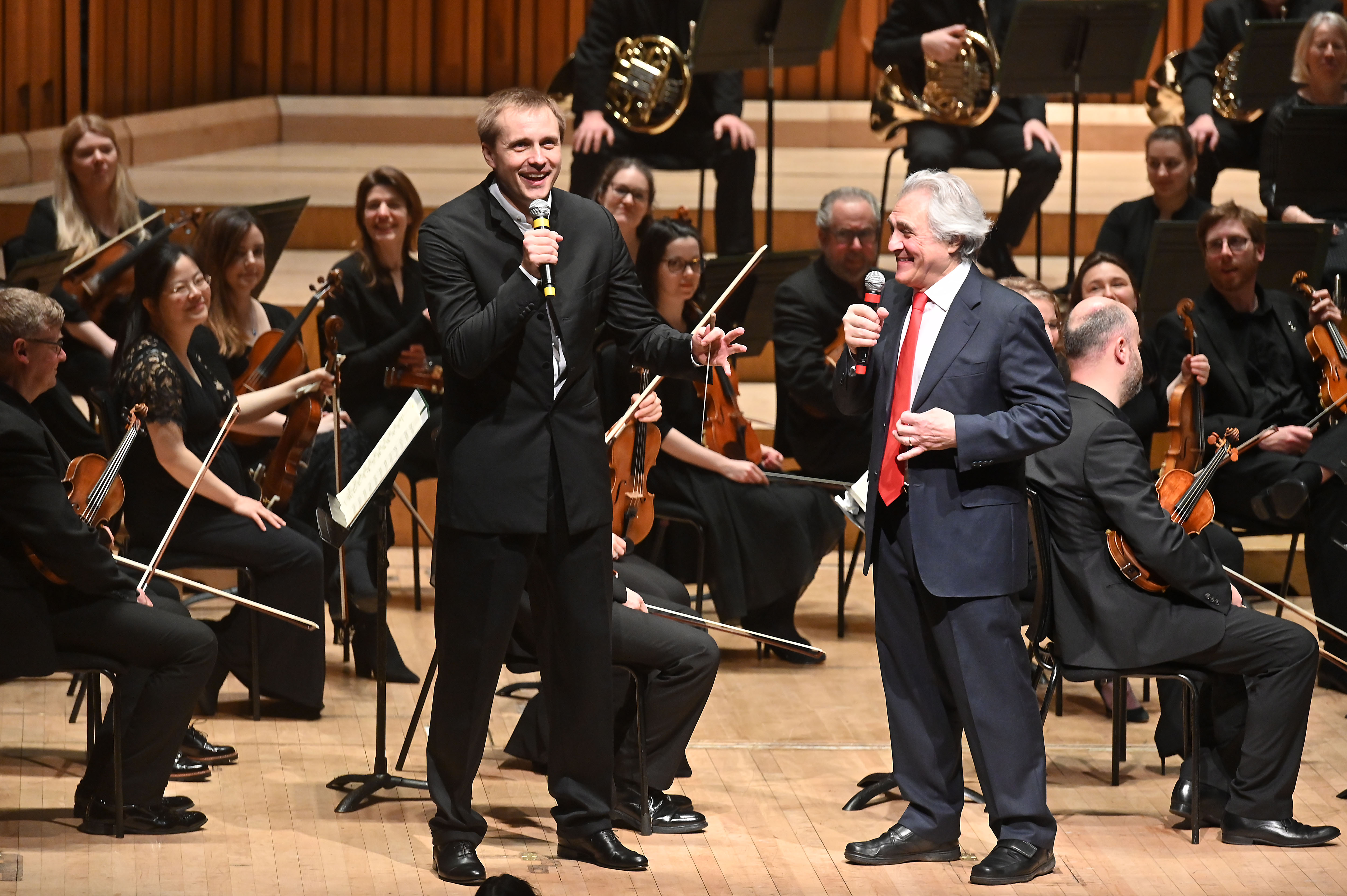Beethoven Weekender, Barbican review - genius at work and play | reviews, news & interviews
Beethoven Weekender, Barbican review - genius at work and play
Beethoven Weekender, Barbican review - genius at work and play
Insights galore in music that never gets old
Where to begin with the most appropriated musician in history? The Barbican’s Beethoven 250 celebrations got off to an auspicious start with a weekend of events, styled like a pop festival, which nonetheless put the composer back where he belonged – in Vienna, at the turn of the 18th century – and set fire to some tenacious myths.
Struggle, transcendence and humour – music that laughs, often through gritted teeth – are the hallmarks of Beethoven’s work. Forget the Ninth’s appropriation as a crutch to prop up manifestos of every stripe: young and not-so-young listeners were entranced at the Barbican by a screening of Ludwig, the 70s cartoon series featuring a robotic egg and lovingly recreated here with live performances of the backing music – and the original narrator, Jon Glover, reprising his role in person.

In fact throughout the weekend, the best of the music-making resisted, with Beethovenian truculence, any narrative attempts to romanticize and update him. The Seventh and Eighth with Vogt, and the First and Third with Kirill Karabits and the Bournemouth SO, always kept Haydn and Mozart in the rear-view mirror. It was rather in more Romantically scaled accounts of the Fifth and Sixth, with the Royal Liverpool Philharmonic and Vasily Petrenko (sharing a joke with Suchet below), that a tired, monumental aspect prevailed, at odds with the famous portrait that scowled at us from every corner of the Barbican. 
Finally, inevitably, the Ninth broadcast its own manifesto of universal brotherhood, rather heavily invested with a sense of its own significance by Sir Mark Elder and the Hallé. Singing from memory, the Hallé Choir gave their all, and a well-matched team of soloists – crowned by Elizabeth Atherton's pearly soprano, remarkably unperturbed by some of Elder’s more grandiose tempi – brought home Beethoven’s message of joy in the teeth of troubled times.
Close listening to all nine symphonies in a weekend yielded more personal insights: how infrequently, if ever, Beethoven writes mezzo-forte into his scores, and yet how the high contrasts in his music won't work without it, like a heavily saturated ("deep-fried") image; how it's possible to impart old-world charm as well as concealed disruption to the minuets and scherzos; how wide the turning-circle of the Ninth is compared to the Third. For once, Suchet was on to something, thanks at least to Karabits' attentive but incandescent account: the "Eroica" really did sound like the symphony that changed music for ever.
rating
Explore topics
Share this article
The future of Arts Journalism
You can stop theartsdesk.com closing!
We urgently need financing to survive. Our fundraising drive has thus far raised £49,000 but we need to reach £100,000 or we will be forced to close. Please contribute here: https://gofund.me/c3f6033d
And if you can forward this information to anyone who might assist, we’d be grateful.

Subscribe to theartsdesk.com
Thank you for continuing to read our work on theartsdesk.com. For unlimited access to every article in its entirety, including our archive of more than 15,000 pieces, we're asking for £5 per month or £40 per year. We feel it's a very good deal, and hope you do too.
To take a subscription now simply click here.
And if you're looking for that extra gift for a friend or family member, why not treat them to a theartsdesk.com gift subscription?
more Classical music
 Anja Mittermüller, Richard Fu, Wigmore Hall review - a glorious hall debut
The Austrian mezzo shines - at the age of 22
Anja Mittermüller, Richard Fu, Wigmore Hall review - a glorious hall debut
The Austrian mezzo shines - at the age of 22
 First Person: clarinettist Oliver Pashley on the new horizons of The Hermes Experiment's latest album
Compositions by members of this unusual quartet feature for the first time
First Person: clarinettist Oliver Pashley on the new horizons of The Hermes Experiment's latest album
Compositions by members of this unusual quartet feature for the first time
 Gesualdo Passione, Les Arts Florissants, Amala Dior Company, Barbican review - inspired collaboration excavates the music's humanity
At times it was like watching an anarchic religious procession
Gesualdo Passione, Les Arts Florissants, Amala Dior Company, Barbican review - inspired collaboration excavates the music's humanity
At times it was like watching an anarchic religious procession
 Classical CDs: Camels, concrete and cabaret
An influential American composer's 90th birthday box, plus British piano concertos and a father-and-son duo
Classical CDs: Camels, concrete and cabaret
An influential American composer's 90th birthday box, plus British piano concertos and a father-and-son duo
 Cockerham, Manchester Camerata, Sheen, Martin Harris Centre, Manchester review - re-enacting the dawn of modernism
Two UK premieres added to three miniatures from a seminal event of January 1914
Cockerham, Manchester Camerata, Sheen, Martin Harris Centre, Manchester review - re-enacting the dawn of modernism
Two UK premieres added to three miniatures from a seminal event of January 1914
 Kempf, Brno Philharmonic, Davies, Bridgewater Hall, Manchester review - European tradition meets American jazz
Bouncing Czechs enjoy their Gershwin and Brubeck alongside Janáček and Dvořák
Kempf, Brno Philharmonic, Davies, Bridgewater Hall, Manchester review - European tradition meets American jazz
Bouncing Czechs enjoy their Gershwin and Brubeck alongside Janáček and Dvořák
 Solomon, OAE, Butt, QEH review - daft Biblical whitewashing with great choruses
Even a top soprano and mezzo can’t make this Handel paean wholly convincing
Solomon, OAE, Butt, QEH review - daft Biblical whitewashing with great choruses
Even a top soprano and mezzo can’t make this Handel paean wholly convincing
 Two-Piano Gala, Kings Place review - shining constellations
London Piano Festival curators and illustrious friends entertain and enlighten
Two-Piano Gala, Kings Place review - shining constellations
London Piano Festival curators and illustrious friends entertain and enlighten
 Echo Vocal Ensemble, Latto, Union Chapel review - eclectic choral programme garlanded with dance
Beautiful singing at the heart of an imaginative and stylistically varied concert
Echo Vocal Ensemble, Latto, Union Chapel review - eclectic choral programme garlanded with dance
Beautiful singing at the heart of an imaginative and stylistically varied concert
 Scott, Irish Baroque Orchestra, Whelan, RIAM, Dublin review - towards a Mozart masterpiece
Characteristic joy and enlightenment from this team, but a valveless horn brings problems
Scott, Irish Baroque Orchestra, Whelan, RIAM, Dublin review - towards a Mozart masterpiece
Characteristic joy and enlightenment from this team, but a valveless horn brings problems
 Classical CDs: Voice flutes, flugelhorns and froth
Baroque sonatas, English orchestral music and an emotionally-charged vocal recital
Classical CDs: Voice flutes, flugelhorns and froth
Baroque sonatas, English orchestral music and an emotionally-charged vocal recital

Add comment